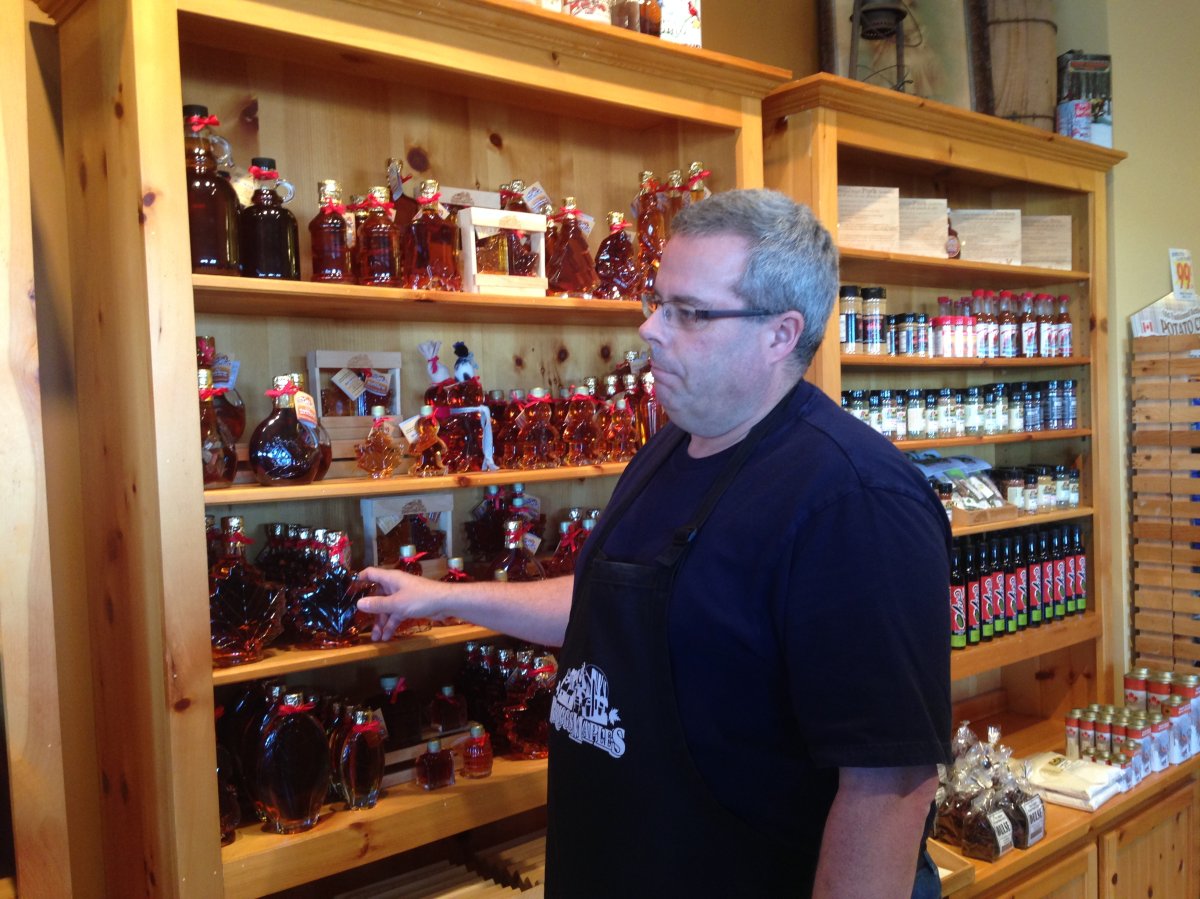Opposition MLAs say the provincial Department of Agriculture should take a more active role in advocating for greater Crown land access for New Brunswick’s maple syrup industry.

Maple syrup producers asked for an additional 12,000 hectares of Crown land earlier this year in order to meet rising demand for their product. The province’s Department of Agriculture, Aquaculture and Fisheries says it takes an active role in helping to develop the industry, but whether or not they gain access to more Crown land isn’t up to the department.
“The actual leasing of land for maple would fall under the Department of Natural Resources and Energy Development,” Deputy Minister of Agriculture Cathy LaRochelle told a legislative committee Friday.
“We do work with maple producers once they have the land, whether it’s helping them with productivity, value-added activity, that’s where our role lies, not the land.”
But Green MLA Kevin Arseneau says the department should be taking a more active role in pushing for the industry’s access to Crown land.
“They need to be that voice in government saying there’s an opportunity here and we need to be looking at Crown lands that have maple production potential and be using them,” he said.
New Brunswick is the second-largest maple syrup producer in the country and third-largest producer in the world. The New Brunswick Maple Syrup Association has been pushing for greater access to Crown land, but says the process has been slow.
- What is a halal mortgage? How interest-free home financing works in Canada
- Boeing reports 1st revenue drop in 7 quarters but beats expectations
- Metro’s profit falls from year ago, but food and pharmacy sales edge higher
- Starbucks looks likely to win U.S. Supreme Court case involving pro-union workers
Liberal MLA Jacques Leblanc says the economic benefit is clear, but says the government lacks the political will to make the necessary decisions.
“It’s a feel-good story, if they have the capacity and they’re willing to produce more, why not give them the land,” he said.
While asking questions of department staff, Arseneau said the blueberry industry, which also leases Crown land, hasn’t had the same issues as the maple syrup producers. Blueberry leases are also handled by the Department of Agriculture, while maple leases are the purview of Natural Resources.
LaRochelle said it’s more difficult to get maple leases because that land is much more in demand. Maple trees are valued by the forestry industry and are used in furniture and many other forest products.
“Blueberry land is actually where there’s not as high value of trees,” she said. “So there’s not as much competition for that.
“There is different interest in maple stands so that rests with the Department of Natural Resources as far as the overall forestry strategy.”




Comments